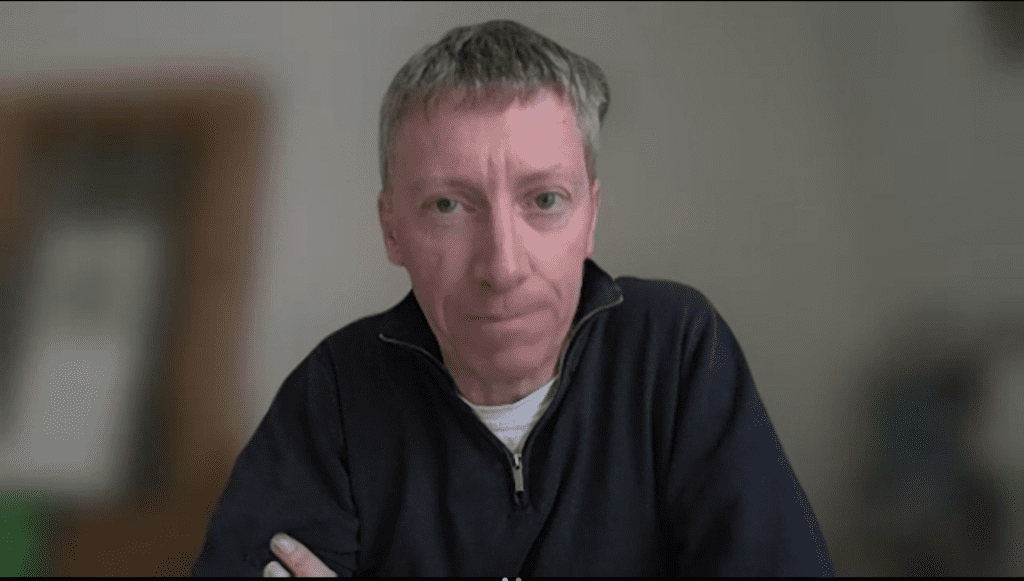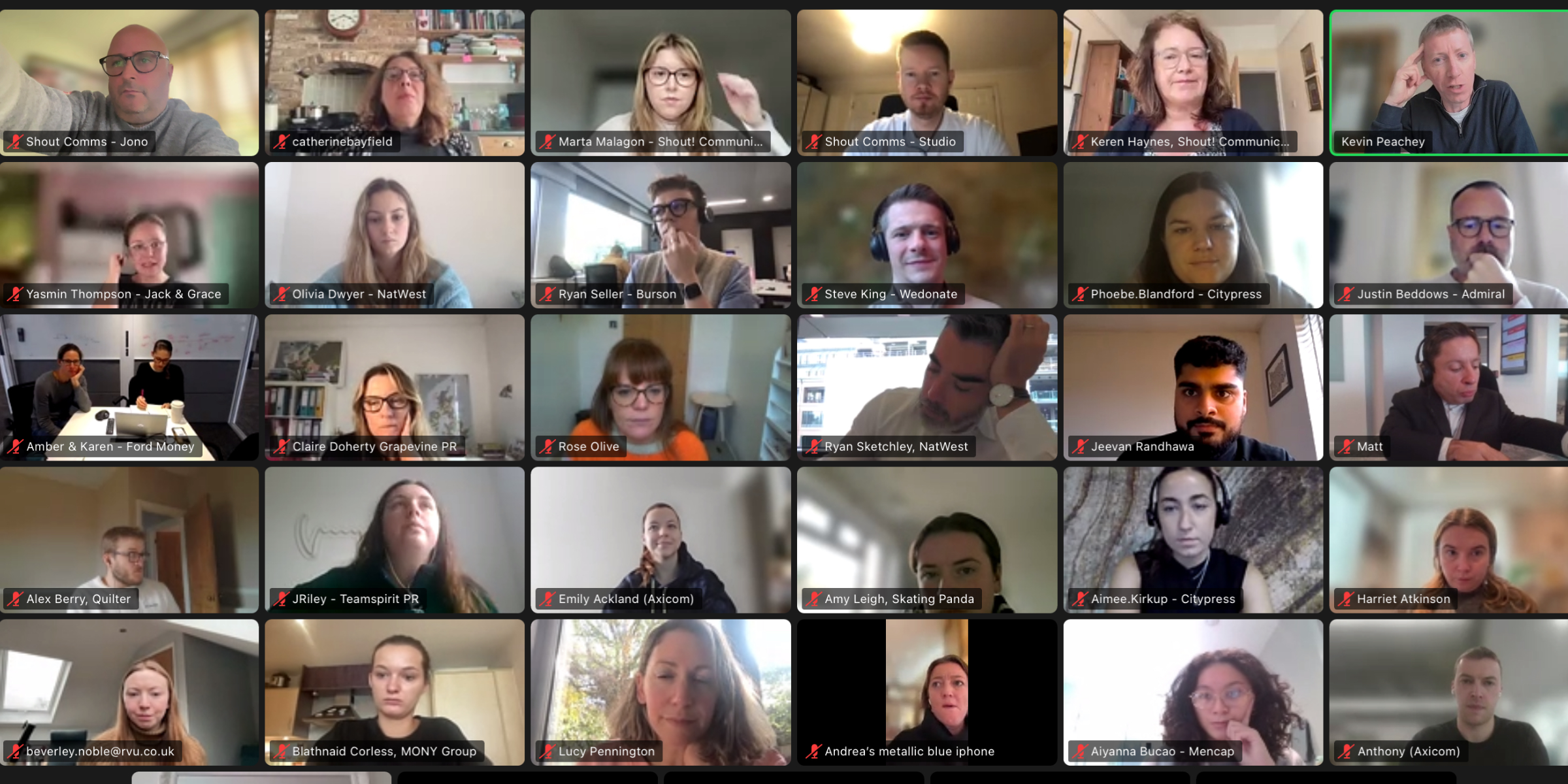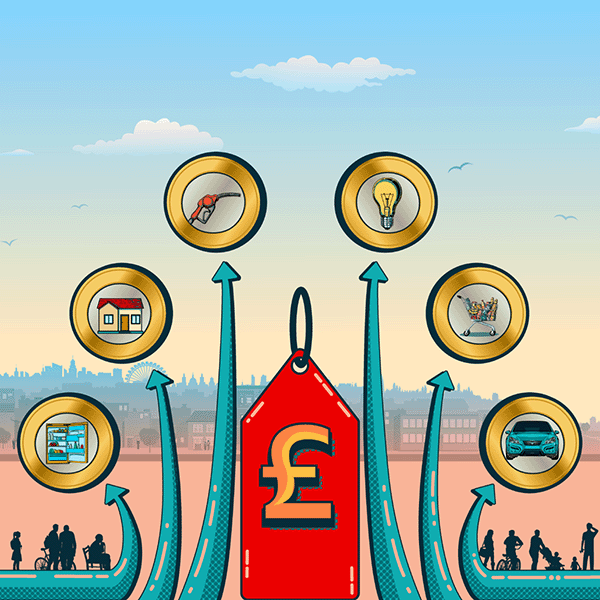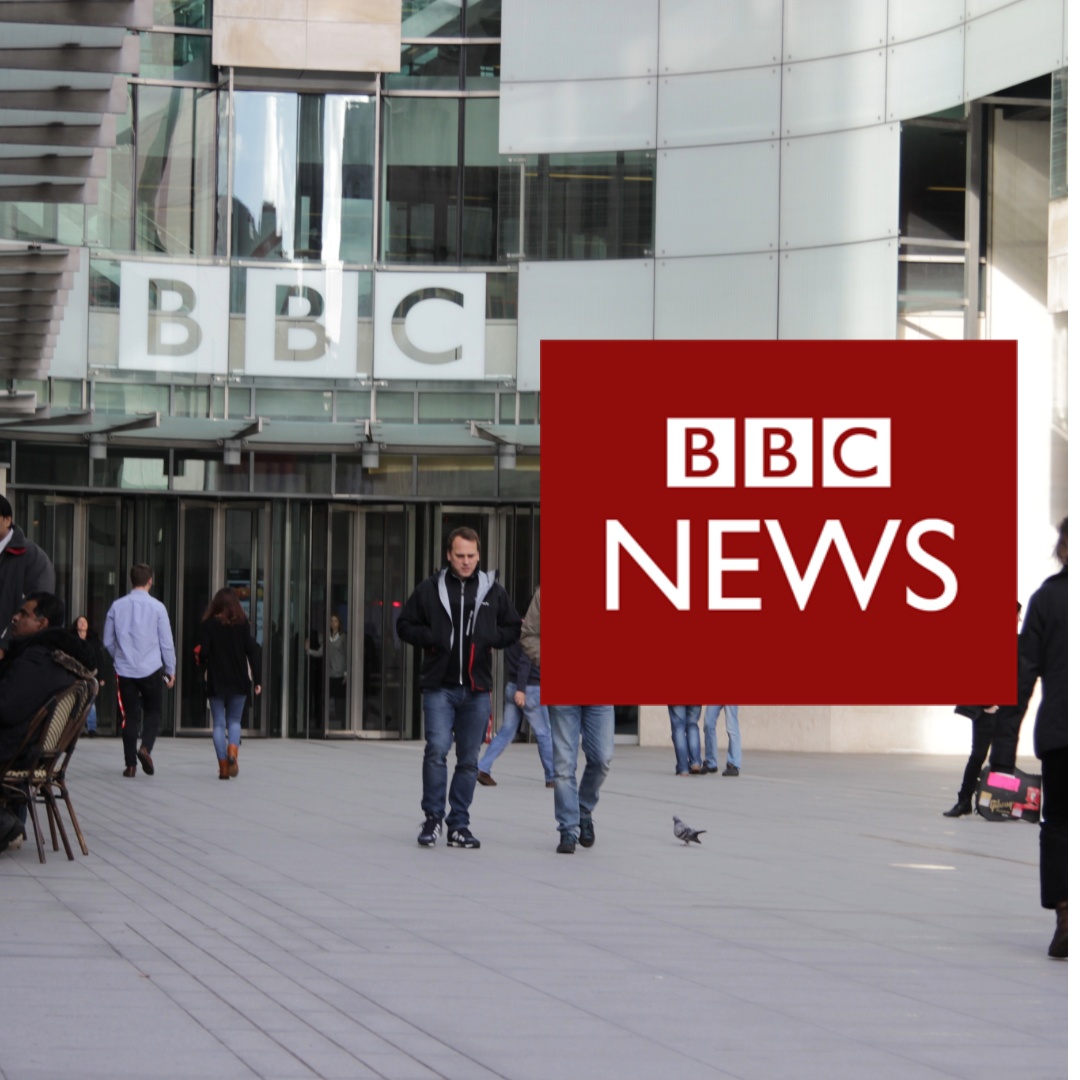Kevin Peachy is the BBC’s cost of living correspondent and works across online, radio, TV and increasingly podcasts. The role has evolved a lot over the years, his title used to be Personal Finance Correspondent but it got revamped due the enormity of issues that have risen due to the increase in cost of living.
This hasn’t always been Kevin’s role though; he’s had many in his 25 years in journalism covering everything from the war in Afghanistan to mortgage rates and even chasing and reporting on serial killers! His career began in local newspapers and he joined the BBC in 2009 just as a financial crisis was in full swing – a bit of a baptism of fire in itself!
Kevin Peachy says broadcasting has a habit of always keeping you on your toes such as the time he was appearing on Radio 4’s Today Programme. During the show John Humphries had a choking fit leaving Kevin to keep talking for what felt like an eternity – it could have been his rise to fame! His years in broadcasting have clearly had a huge influence on those around him including his son, who was watching Newsround as our Small Talk began.

Flexibility
Kevin receives hundreds of broadcast PR pitches every single day, especially since the cost of living is currently such a dominant topic in the broadcast space. Therefore, he gave us some tips on what broadcast PR professionals can do to stand out from the crowd.
Firstly, was the subject of flexibility. We are all incredibly close to the stories we pitch, and for good reason, but to stand a better chance of garnering interest, we should be flexible with our approach. For instance, Kevin may like a story idea, but it may not actually end up being the one he covers on air. It may be that he finds an element of it interesting, but he’s already working on a similar story on that subject. If this is the case, your story could feed into a wider story, bolstering the item he’s working on, but also achieving exposure for your client. It’s a win-win situation for both sides.
Availability
Kevin Peachy prefers broadcast PR pitches to come via e-mail format in the first instance but emphasised that follow up availability afterwards is paramount. To him, there’s nothing more irritating than reading a really interesting story that he’d like to potentially cover, only then to not get an answer when he calls the PR back. Remember, he gets hundreds of story ideas every week so being available for a deeper dive and research chat is really important.
With this in mind, BBC’s Kevin Peachy says one his biggest annoyances is broadcast PR press releases that don’t have phone numbers on them. Of course we’re living in the digital age with flexible and hybrid working being more common, but he still needs to talk to a human! For him, he knows that with a phone call he’ll be able to get a fairly instant response regardless of location, whereas with an email reply it’s impossible to know whether he’ll get a response immediately, within a few minutes or indeed a few days.
The hour after the recent budget for example was absolutely not the time to try and get the eyes and ears of reporters who were working on the announcement. Kevin was busy fronting TV and radio appearances and pulling together the key takeaways delivered by the chancellor. That’s not to say he wasn’t interested in relevant budget stories or great spokespeople qualified to offer comment, far from it! Offers should just be made in advance so they are on his radar.
With this in mind, a story which isn’t very time sensitive is less likely to cut through during a very busy news period. For something interesting but less attached to a certain date, Kevin is more likely to run in quieter times such as the school summer holidays in August. He says not to be too offended if he’s not interested right away, it may be something he comes back to at a later date or something that could form part of a longer term piece for example.
Spokespeople
He loves speaking to experts in their field to discuss these and there is a current drive to secure a range of people from different backgrounds, genders and geographical locations. Case studies are also incredibly useful when pitching stories which discuss cost of living. It’s all very well offering a CEO of a company, but what really makes a story stand out and resonate are real people impacted by the issues discussed.
It’s also useful to note that location isn’t really an issue any more either. Technology has obviously moved on dramatically in recent years which helps the BBC interview people who are not necessarily on their doorstep. A case study living who can’t travel to a studio for instance should no longer be a deterrent to including them in your broadcast PR pitch. That said, this is the BBC after all and quality is always key. An offer of a spokesperson with a camera makes things a lot easier for TV and is more likely to garner interest.
Exclusives
Kevin often has press offices approaching him offering exclusive stories, but for him the exclusive element doesn’t really hold too much weight anymore. Obviously he doesn’t want to see the story anywhere else first, but for him the media world moves so fast these days that an exclusive only really lasts for a few seconds. He is more interested in how interesting the story is and what it adds to the conversation. He’s happy to take a story pegged to a certain date, but he’s less likely to throw interest at something simply due to exclusivity on its own.
Far more important for him is that he is given advance notice of any embargo date. Television can involve quite a lot of logistical planning such as making arrangement for filming, recording, editing and getting everything ready for broadcast in advance. Factoring this in to any broadcast PR pitch can be much more beneficial to him than relying on exclusivity alone.
Choose Shout! Communications
Looking to get your brand on the BBC? Here at Shout! Communications we specialise in helping brands secure media coverage on the most reputable news outlets. With our extensive industry experience and contacts across TV, radio, and online news, we make getting media attention easier than ever. Read more about our media relations services here: https://shoutcommunications.co.uk/what-we-do/broadcast-media-relations/
Our media training also ensures you and your spokespeople make the very most out of any hard won news opportunity. Read more our media training here: https://shoutcommunications.co.uk/what-we-do/media-training/Let Shout! Communications help you craft, pitch, and land the story that will put your brand in the spotlight.
Contact us today to take your brand’s visibility to the next level.
Get in Touch

Author: Carl Hughes
Carl ensures that the Shout! Communications team produces quality editorial coverage for clients across all broadcast channels. Before joining the media relations team Carl worked for 15 years as a producer and presenter for commercial radio groups Global and Bauer, at Heart and Capital FM.






